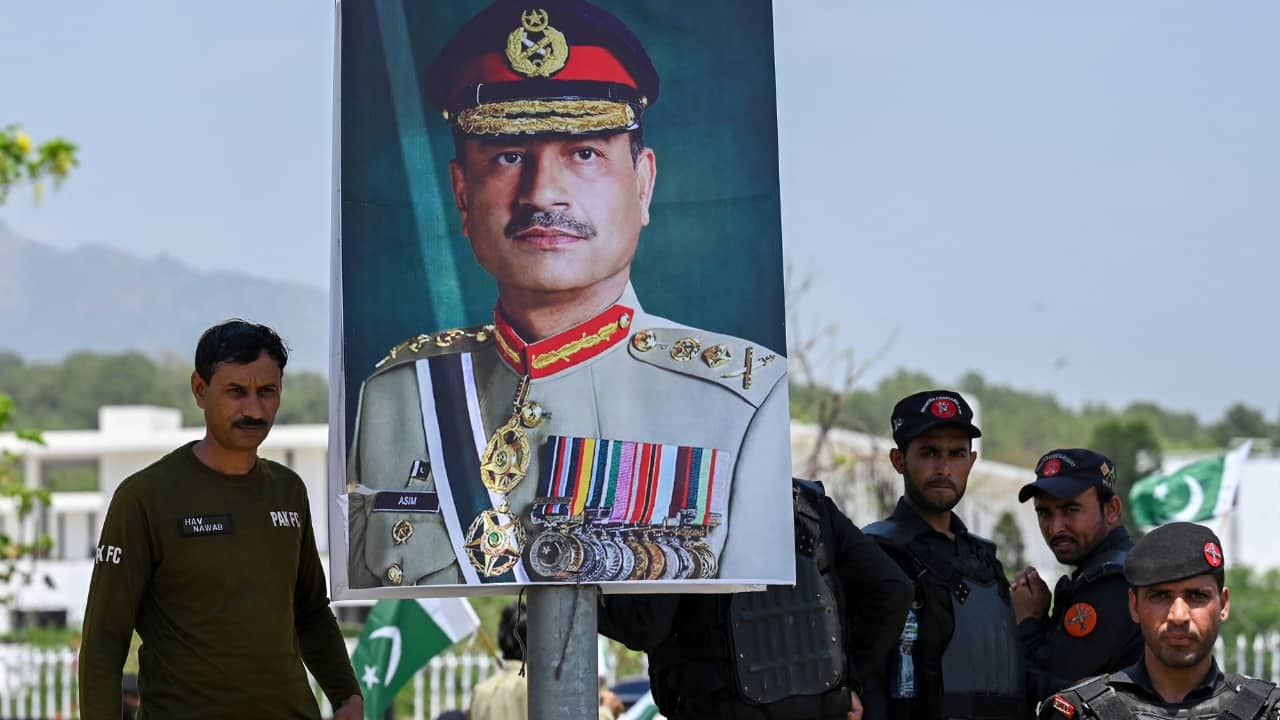Politics
Pakistan’s PM Denies Military Coup Rumours Amid Political Tensions

Pakistan’s Prime Minister Shehbaz Sharif recently addressed swirling rumours surrounding Army Chief General Asim Munir, asserting that there are no plans for a military coup to dethrone President Asif Ali Zardari. In an interview with The News, Sharif emphasized, “Field Marshal Asim Munir has never expressed any desire to become the president, nor is there any such plan in the offing.”
Sharif’s comments came after Mohsin Naqvi, the interior minister, dismissed the speculation as a “malicious campaign” aimed at undermining both civilian and military leadership. Despite these denials, the language used by Sharif raises questions about the relationship between Pakistan’s civilian government and its military, which has a long history of intervening in politics.
Historical Context of Military Influence
The military has played a dominant role in Pakistan’s governance, having directly ruled for about 34 of its 78 years since independence in 1947. The first military coup occurred in 1958 when General Ayub Khan seized power. He ruled until 1969, followed by General Yahya Khan until 1971. After a brief democratic period, General Zia-ul-Haq took control in a coup in 1977, remaining in power until his death in 1988. The last military ruler, General Pervez Musharraf, overthrew Nawaz Sharif in 1999 and governed until 2008.
The military’s substantial influence remains a critical aspect of Pakistan’s political landscape, even if it no longer holds the presidency. While Munir has not publicly indicated ambitions for the presidency, the very notion that he could do so without substantial opposition from the establishment highlights the pervasive power of the military in shaping the country’s direction.
Since being elevated to the rank of Field Marshal, following Operation Sindoor, comparisons between Munir and former military leaders have intensified. Critics note that both men emerged from a military establishment that often prioritizes anti-India rhetoric and views civilian governance as expendable. The concern is that should Munir decide to pursue a political role, there may be little to prevent him from doing so.
The Current Political Landscape
In the wake of Operation Sindoor, a significant military operation, Munir has rapidly consolidated power. His recent engagements, including representing Pakistan before former US President Donald Trump, have underscored his prominence, positioned against a backdrop of ongoing civilian leadership struggles to maintain authority. This contrast is notable when comparing Sharif’s praise for Munir’s leadership during the operation, while often sidelining the contributions of those who fought on the frontlines.
In contrast, Indian Prime Minister Narendra Modi publicly recognized the efforts of the entire armed forces in Operation Sindoor. This disparity in leadership representation sheds light on the complexities of military and political dynamics in both nations.
As speculations continue, the potential for military involvement in politics remains a sensitive topic in Pakistan. Despite denials from Sharif and Naqvi, the history of military coups continues to loom large over the nation’s political discourse. The situation leaves many wondering how much influence the military truly wields and what implications this has for Pakistan’s democratic processes.
Ultimately, while the current leadership seeks to quell fears of a coup, the enduring legacy of military power in Pakistan ensures that such discussions will persist. The political landscape remains fraught with uncertainties, as both the military and civilian leaders navigate a complex relationship in the pursuit of control.

-

 World7 months ago
World7 months agoSBI Announces QIP Floor Price at ₹811.05 Per Share
-

 Lifestyle7 months ago
Lifestyle7 months agoCept Unveils ₹3.1 Crore Urban Mobility Plan for Sustainable Growth
-

 Science6 months ago
Science6 months agoNew Blood Group Discovered in South Indian Woman at Rotary Centre
-

 World7 months ago
World7 months agoTorrential Rains Cause Flash Flooding in New York and New Jersey
-

 Top Stories7 months ago
Top Stories7 months agoKonkani Cultural Organisation to Host Pearl Jubilee in Abu Dhabi
-

 Science7 months ago
Science7 months agoNothing Headphone 1 Review: A Bold Contender in Audio Design
-

 Sports6 months ago
Sports6 months agoBroad Advocates for Bowling Change Ahead of Final Test Against India
-

 Top Stories7 months ago
Top Stories7 months agoAir India Crash Investigation Highlights Boeing Fuel Switch Concerns
-

 Business7 months ago
Business7 months agoIndian Stock Market Rebounds: Sensex and Nifty Rise After Four-Day Decline
-

 Sports6 months ago
Sports6 months agoCristian Totti Retires at 19: Pressure of Fame Takes Toll
-

 Politics7 months ago
Politics7 months agoAbandoned Doberman Finds New Home After Journey to Prague
-

 Top Stories7 months ago
Top Stories7 months agoPatna Bank Manager Abhishek Varun Found Dead in Well








